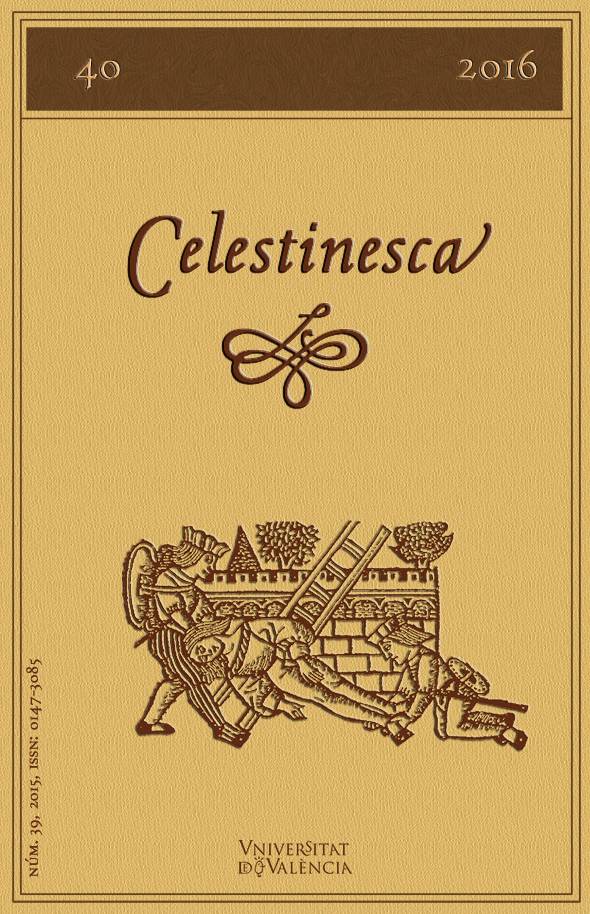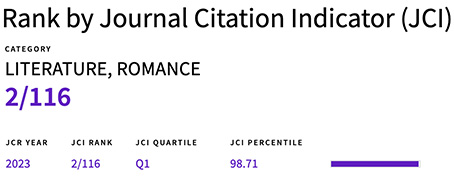Towards a new subjectivity: the father figure in the sentimental genre and La Celestina
DOI:
https://doi.org/10.7203/Celestinesca.40.20191Keywords:
Father figures, sentimental novel, Pleberio, Siervo libre de amor, Cárcel de amor, La Historia de Grisel y Mirabella Abstract
Abstract
This article examines the figure of the father in the sentimental novels Siervo libre de amor (1440) by Juan Rodríguez del Padrón, Cárcel de amor (1492) by Diego de San Pedro and La Historia de Grisel y Mirabella (1495) by Juan de Flores in order to contrast those figures with the character of Pleberio in La Celestina. I argue that the father in La Celestina should be read as a parody of the figure of the father in the sentimental novel genre. Moreover, I propose that Pleberio represents a new form of subjectivity, in which the father is not worried about representing the law and authority nor about being impartial. In Fernando de Rojas' text, the father instead he takes a more human stance regarding his daughter's death.
 Downloads
Downloads
Downloads
Published
How to Cite
-
Abstract460
-
PDF (Español)246
Issue
Section
License
![]() Celestinesca is committed to the dissemination of knowledge, that is why access to its contents is free and is ruled by a Creative Commons Attribution-NonCommercial-NoDerivatives 4.0 license.
Celestinesca is committed to the dissemination of knowledge, that is why access to its contents is free and is ruled by a Creative Commons Attribution-NonCommercial-NoDerivatives 4.0 license.
Authors retain the rights to their works. Therefore, they can disseminate them and deposit them in the repository, institutional or not, that they wish. However, they are kindly requested to do so by providing the full bibliographic reference and the corresponding DOI.
Celestinesca does not charge authors for submitting, processing, reviewing or publishing their articles.





